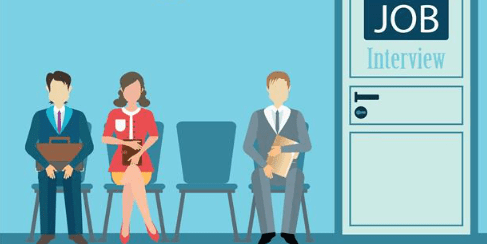Lesson #5: Make an Impression
How to Get a Job
Length: 30 mins
❏ Understand interview etiquette: before, during, and after
❏ Practice interviewing skills and being in the “hot seat”
❏ Reading: Key Ideas and Details
❏ Reading: Integration of Knowledge and Ideas
❏ Speaking and Listening: Comprehension and Collaboration
❏ Speaking and Listening: Presentation of Knowledge and Ideas
❏ Language: Vocabulary Acquisition and Use
Interview Etiquette

Congratulations on completing all of the lessons for How to Get a Job!
*If you are completing this curriculum from a paper version, you will need a laptop or smartphone to complete your Post-Program Reflection. Once online, navigate to https://www.tfaforms.com/5143032.
New concepts covered and activities completed:
TODAY: Lesson #5: Make an Impression
- Interview etiquette
